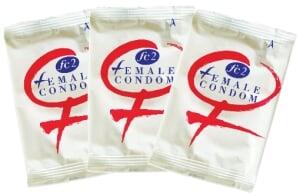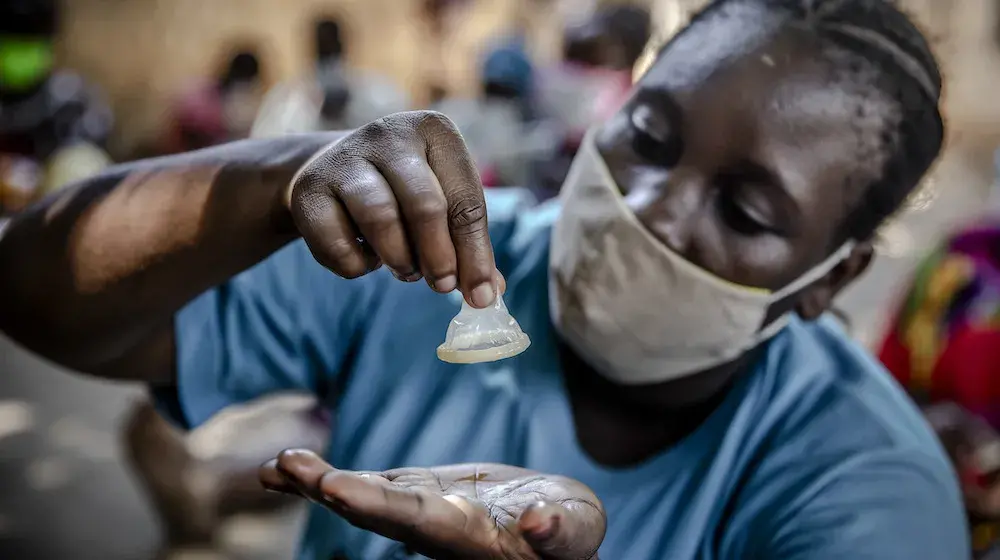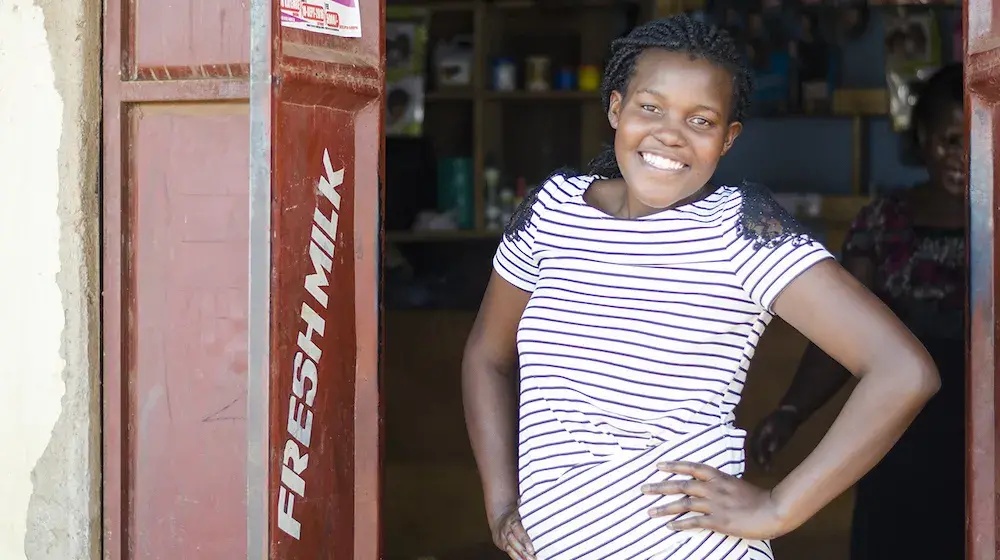ADDIS ABABA, Ethiopia, 6 December 2011 — The UNFPA, United Nations Population Fund, and its partners on Monday launched its Condomize Campaign to promote the use of both female and male condoms to fight HIV/AIDS and other sexually transmitted infections (STIs).
The campaign was launched in parallel with the 16th International Conference on AIDS and STIs in Africa (ICASA), which was opened in Ethiopia last Sunday. The Condomize Campaign uses different promotional activities and materials ranging from the distribution of specially branded condoms at the Millennium Hall to some 10,000 conference participants, to the distributing of T-shirts and condom-donned pins.
“Our activities here including the music and the paintings are all about education on the accessibility and utilization of condoms to protect from HIV infection and other STIs,” said Frank DeRose, Global Condomize Co-ordinator at the Condom Project USA.
Currently, the campaign is providing condom education in the Amharic, English and French languages. The crew of the campaign arrived in Addis with 500,000 male condoms, 20,000 female condoms and 10,000 teaching discs.
According to UNAIDS’s latest report, globally the number of people dying due to AIDS-related diseases has shown a decline over the past few years. In 2010 there were 1.8 million AIDS-related deaths, while globally, 2.2 million deaths were registered in 2005.
“The reason we organized this campaign is to create a willing space for people to talk about condoms in public and promote their use,” said Bidia Deperthes, HIV Advisor at Global Condom Co-ordinator in UNFPA, teaching about the effectiveness of female condoms in protecting people from HIV and other STIs.
At the end of 2010 a total of 34 million people were living with HIV globally. UNFPA has undertaken the Condomize Campaign in Addis Ababa in collaboration with USAID, PEPFAR and DKT Ethiopia.
Effectiveness of condoms
Global practices show that the male latex and female condoms are the most efficient and available technology to reduce the sexual transmission of HIV and other sexually transmitted infections.
Condom use is more likely when people can access them at no cost or at greatly subsidized prices. Effective condom promotion targets not only the general population, but also people at higher risk of HIV exposure, especially women, young people, sex workers and their clients, injecting drug users and men who have sex with men.
Condoms have encouraged safer sexual behaviour more generally. Recent analysis of the AIDS epidemic in Uganda has confirmed that increased condom use, in conjunction with a delay in the age of first sexual intercourse and a reduction of sexual partners, was an important factor in the decline of HIV prevalence in the 1990s.
Thailand’s efforts to de-stigmatize condoms and its targeted condom promotion for sex workers and their clients dramatically reduced HIV infections in these populations and helped reduce the spread of the epidemic to the general population. A similar policy in Cambodia has helped stabilize national prevalence, while substantially decreasing prevalence among sex workers.
In addition, Brazil’s early and vigorous condom promotion among the general population and vulnerable groups has successfully contributed to sustained control of the epidemic.
An estimated 13 billion condoms per year are needed to help halt the spread of HIV and other sexually transmitted infections, according to UNAIDS.
The search for new preventive technologies such as HIV vaccines and microbicides continues to make progress, but condoms will remain the key preventive tool for many years to come.
*****
About UNFPA
The United Nations Population Fund supports countries in using population data for policies and programmes to reduce poverty and to ensure that every pregnancy is wanted, every birth is safe, every young person is free of HIV, and every girl and woman is treated with dignity and respect.
UNFPA works in partnership with governments, other agencies and civil society to advance its mission. Three frameworks guide its efforts: The Program of Action adopted at the 1994 International Conference on Population and Development and the Millennium Development Goals , a set of eight time-bound targets to reduce extreme poverty by 2015, and the Growth and Transformation Plan of the Government of Ethiopia.
For further information:
Meron Negussie, RH Programme Officer, UNFPA; Tel. +251-11-5444460; E-mail: negussie@unfpa.org
Abraham Gelaw, Communication Officer, UNFPA; Tel. +251-11-5444079; E-mail: gelaw@unfpa.org
Andualem Sisay, Media Consultant; Tel. +251 91 140 7539; +251 922 481 51; E-mail editor@newbusinessethiopia.com; andualemsis@gmail.co




